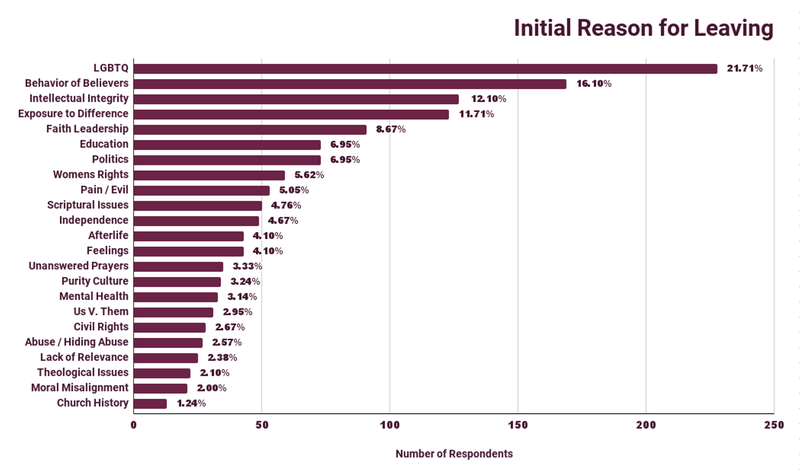· Apologetics > Apologetics and Unbelievers > Non-Christians · 4 min read
Biblical Guide to Staying Faithful in Your Christian Beliefs
Discover the reasons why some individuals choose not to adhere to Christianity and explore the factors that influence their decision, shedding light on alternative belief systems and personal perspectives.

Why Not Leave Christianity?
Introduction
Leaving Christianity is a decision that some individuals may contemplate due to various reasons. However, it is important to thoroughly examine these reasons before making such a decision. In this article, we will explore three common reasons people give for leaving Christianity and provide a biblical perspective on why these reasons should not be grounds for abandoning the faith.
Reason 1: Unanswered Intellectual Questions
One of the reasons people leave Christianity is the presence of unanswered intellectual questions. These questions often revolve around theological issues such as the problem of evil or reconciling scientific discoveries with the Bible. While these questions are valid and should be explored, they do not negate the truth of Christianity.
Why This Matters: As Christians, it is crucial to engage in thoughtful inquiry and seek answers to our intellectual questions. By doing so, we can strengthen our faith and develop a deeper understanding of God’s truth.
Reason 2: Emotional Considerations
Another common reason for leaving Christianity is negative emotional experiences within the church or personal hardships. Many individuals may have encountered hurtful situations involving fellow Christians or may have faced personal struggles that left them feeling angry or disillusioned. While these experiences are undoubtedly painful, they should not be used as a basis for rejecting Christianity.
Why This Matters: As Christians, we must recognize that the actions of imperfect individuals or challenging circumstances do not reflect the true nature of Christianity. Our faith should not be determined solely by our emotional experiences but by the unchanging truth of God’s Word.
Reason 3: Moral Preferences
People may also reject or leave Christianity because they find certain ethical demands in the Bible unappealing or believe that the Christian faith does not align with current cultural norms. However, personal moral preferences should not dictate our commitment to Christianity.
Why This Matters: Christianity calls us to live according to God’s standards, which may sometimes differ from societal expectations. It is essential to understand that God’s moral principles are rooted in His unchanging nature and provide a framework for flourishing and true fulfillment.
The Big Picture: God’s Existence and Jesus’ Resurrection
When considering whether or not to leave Christianity, it is crucial to examine the two foundational truth claims of the faith: the existence of God and the resurrection of Jesus. If these assertions are true, then Christianity is indeed valid and should be embraced.
The Existence of God: When contemplating the existence of God, it is valuable to consider the alternative. Without God, the only explanation for the existence of everything is an impersonal, non-conscious, and purposeless universe accidentally creating personal, conscious beings. This alternative requires immense faith compared to acknowledging an eternal Creator whose attributes align with what we see in the world.
Jesus’ Resurrection: The historical existence of Jesus is widely accepted by scholars and historians. Similarly, the basic events surrounding His resurrection, such as His crucifixion under Pontus Pilate, burial, and reports of His appearances afterwards, are not disputed. While interpretations of these events may vary, the alternative explanations for Jesus’ resurrection, such as the hallucination hypothesis, do not withstand scrutiny.
Think About It: Reflecting on the evidence for God’s existence and Jesus’ resurrection can provide a solid foundation for our faith. By examining these truths from a biblical perspective and engaging with historical evidence, we can strengthen our conviction in Christianity.
Challenging Questions and Continued Growth
It is important to recognize that challenging questions may arise in both intellectual and scientific realms. Just as scientists continue to research, study, and learn until they find answers to their inquiries, Christians should approach their faith with the same mindset.
Why This Matters: Our faith should not be stagnant but dynamic and intellectually vibrant. By embracing questions and seeking answers through prayer, studying Scripture, engaging with Christian scholarship, and participating in thoughtful discussions, we can deepen our understanding and grow in our relationship with God.
Conclusion
While intellectual, emotional, or moral questions may arise in the context of Christianity, they should not serve as valid reasons for leaving the faith. By examining the evidence for God’s existence and Jesus’ resurrection, engaging in thoughtful inquiry, and continuing to grow in our understanding of the Christian faith, we can maintain a firm foundation for our belief. It is through this process of exploration and growth that we can embrace the truth of Christianity and experience the fullness of God’s love and purpose in our lives.



